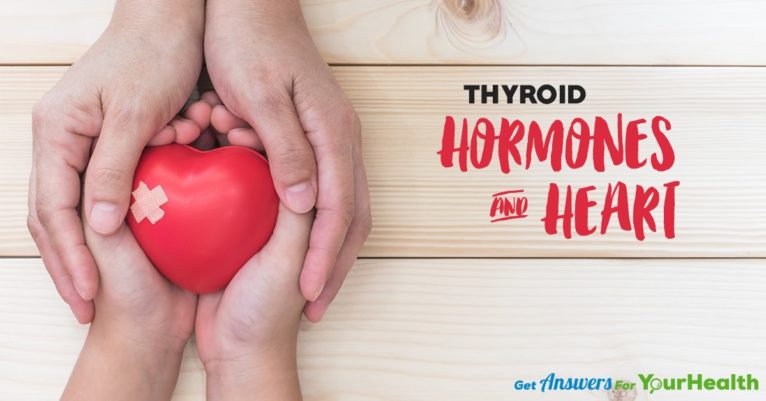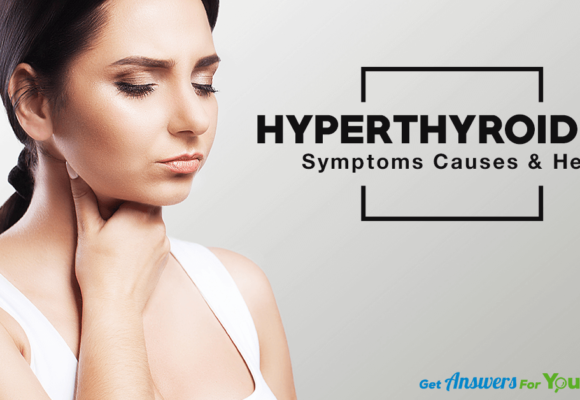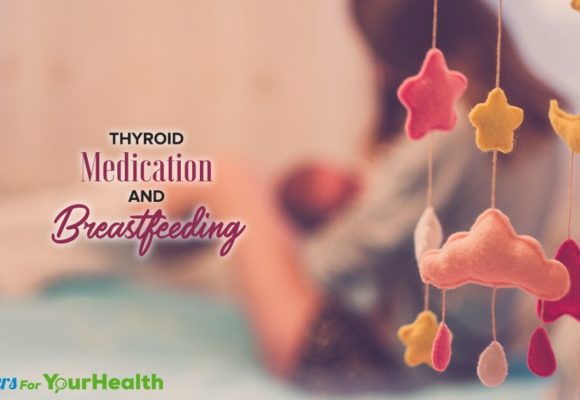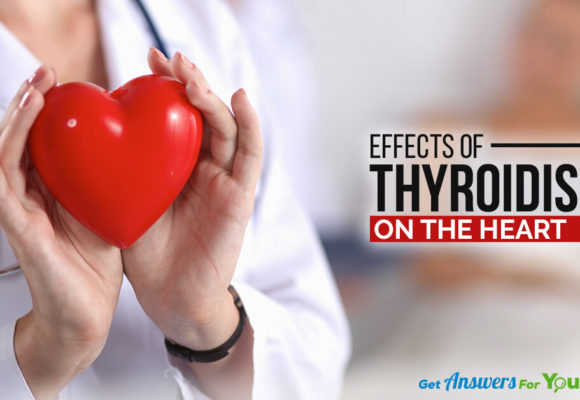1) Grab a FREE copy (Value $14.95) of one of my books Thyroid Symptom Overload
Just pay shipping $7.95 for any US orders. Or, if you want to pay full price plus shipping, order from Amazon :)
2) Take our Thyroid Quiz today and find out what "Thyroid Type" you have
This quiz will help you quickly discover where your symptoms are stemming from.
3) Join Our Thyroid Advocate Membership Site - Natural Thyroid Academy
FREE for a limited time. No credit card required.
4) Work with me and my team privately
Schedule your FREE 15 minute phone consultation and we can find out the best way to help you specifically.
You may be wondering what is the association of the thyroid gland with heart function. But first, let’s talk about the basics of the thyroid gland?
The thyroid gland is a small-sized gland found in the neck. It is a butterfly-shaped gland which regulates the energy levels and metabolism rate. Thyroid gland dysfunction can result in altered heart rhythms. This increases the risk of stroke and heart failure as the thyroid hormone affects heart function. This can further result in adverse heart symptoms and complications.
Let’s discuss the normal mechanism of action of the heart. The heart has muscle chambers which contract and release blood into the body’s circulation. Due to our heart valves, the blood flows in one direction. The right side pumps the blood to the lungs while the left side of heart distributes blood to different organs within the body.
There are two essential principles that you need to understand:
1) The heart is a muscle which needs oxygen to continue work and this oxygen is supplied by coronary arteries to the heart. Diseased coronary arteries reduce the blood flow to the heart because of the lumen blockage (clogged up). This results in inadequate oxygen supply to the heart, leading to angina pain.
2) The heart beats by a contraction in a coordinated and synchronized fashion with blood being released in a smooth manner. This occurs because the specialized tissues present in the heart allows the conduction of electrical impulses. The normal electrical impulse starts from the top most area of the right atrium and goes down the heart.
Hyperthyroidism:
Signs And Symptoms:
The most common signs and symptoms include;
- Sleepiness
- Weight loss
- Excessive sweating
- Hunger
- Heat Intolerance
- Hand Tremors
- Increased Appetite
- Fatigue
When the thyroxine levels are increased by the thyroid gland, it can increase the heart beat in a more rapid and stronger fashion. The term tachycardia is used for faster heart rate. It is not a common sign noticed by the patient, but the doctor or endocrinologist may identify it. When these heart rates become severe, it results in palpitations which is often felt by the patient. Caffeine and excessive exercises may further induce palpitations. Fast and prolonged heart rates can also occur at rest.
Palpitations can be present in heart disease. If it is associated with an overactive thyroid gland, it doesn’t indicate that you have underlying severe heart disease. Due to the thyroxine, in coordination of electrical impulses occur, resulting in atrial fibrillation.
What Is Atrial Fibrillation?
It is a type of common arrhythmias such as irregular heartbeat. In atrial fibrillation, the impulses arise within the ventricle rather than the right atrium. This can result in uncoordinated atrial contraction along with irregular heartbeat.
The long term stimulation of heart contraction results in increased blood pressure. This is referred to as “systolic hypertension”. However, diastolic blood pressure does not increase. The increased amount of heart contractions along with cardiac output may result in an increased pulse rate. This is easily felt at the wrist, along with sweaty and warm hands.
In hyperthyroidism, heart rate can be faster with increased blood pressure. In women, the common sign is chest pain.
Factors Causing Atrial Fibrillation:
This can include: sleep apnea, high blood pressure, old age, and hyperthyroidism.
Symptoms Of Atrial Fibrillation:
These include irregular or rapid heartbeat, fatigue, faintness, dizziness, and confusion.
Clinical Diagnosis By Medical Doctors In Such Patients:
Excess thyroid hormones result in cardiovascular manifestations such as widened pulse pressure, tachycardia, brisk carotid pulsations and peripheral arterial pulse. First heart sound is loud, alongside a hyperkinetic cardiac apex.
Some studies indicate the mechanism of action of thyroid hormones on the heart. It is known to affect specific molecular pathways in the vasculature and the heart. However, it is not clear whether high cardiac output occurs due to the changes in myocardial contraction or due to the peripheral hemodynamics.
The most common signs of heart symptoms associated with hyperthyroid patients include resting sinus tachycardia and positive chronotropic effect. Atrial fibrillation is often reported in patients with hyperthyroidism. The chronotropic effect is due to the imbalance of the sympathetic vagal tone.
Association Of Thyroid Hormones With Heart:
Heart rate is important for regulating the cardiac output. It determines the cardiac ejection, which affects both diastolic and systolic functions. Increased heart rate has high chances of stroke.
Tachycardia results in increased rate of myocardial relaxation. Increased heart rate results in decreased diastolic filling time leading to dependence upon atrial systole. Heart rate also affects the hemodynamics of the peripheries. Systolic time is reduced when the heart rate is increased.
Lab tests also identify the overproduction of thyroid hormones. This occurs with Gravesdisease because the immune system is involved.
Consult Your Doctor:
You should consult your medical doctor or endocrinologist. They can help you in correction of hyperthyroidism. They will identify the underlying cause of hyperthyroidism to provide you with the best treatment.
Your medical doctor will decide to prescribe you with radioactive iodine therapy, drugs or thyroid surgery. They can also provide you with treatment for atrial fibrillation, i.e., anticoagulants. This is used to reduce the risk of atrial fibrillation converting into stroke. They may also treat atrial fibrillation with Cordarone (Amiodarone), but it can affect the thyroid gland due to the high content of Iodine.
Your medical doctor will provide you the treatment for angina so that it slows down the heart rate. For example, Beta-blockers such as Propranolol or Calcium channel blockers are often prescribed. These drugs can also decrease the symptoms associated with hyperthyroidism such as anxiety and finger tremors. The physician will treat heart failure with Digoxin and other drugs. The water excretion through kidneys can be treated with Furosemide which is a diuretic. There is no identified association of thyroxine with the heart. However, patients may show digoxin resistance. To overcome this, your medical doctor needs to measure the levels of digoxin in blood and adjust the dosage.
Hypothyroidism:
Signs And Symptoms:
The most common signs and symptoms include:
- Weight gain
- Fatigue
- Cold intolerance
- Irritability
- Constipation
- Trouble in concentrating
- Dry skin
Hypothyroidism results in less heart contractions with low blood pumping capability. Low thyroid hormone results in increased blood pressure in the legs and arms. The increase in cholesterol levels can further accelerate heart disease.
It is completely opposite to hyperthyroidism, i.e. slow heart rate along with low blood pressure. Prolonged hypothyroidism can result in metabolic changes within the body, resulting in rise of cholesterol levels. The increased cholesterol levels result in plaque formation causing the blockage of coronary arteries. However, heart complications such as heart attack and angina are rare because blood pressure and heart rate is low. Bradycardia results in cardiac arrest due to the lack of Oxygen and nutrients. With time, high blood pressure occurs due to atherosclerosis, a high-risk for stroke and heart attack.
Common Drugs Which Are Utilized For This Purpose:
Studies show that high and low TSH levels especially >10 and <0.10 mIU/L results in increased risk of heart failure. Subclinical hypothyroidism is highly associated with chances of heart disease especially in patients with TSH levels more than 10 mIU/L.
If there are hypothyroid symptoms along with elevated lipids, then treatment is required by your medical doctor. However, if no symptoms are present and lipids are normal, your doctor can keep watch of your labs and symptoms.
Studies show that there is an association of hypothyroidism with increased death rate in patients with heart failure. However, it is not identified that whether hypothyroidism affects the heart or not.
The impaired conversion of T4 to T3 is highly associated with fatal effects on the heart. The most common drug prescribed for thyroid replacement includes Levothyroxine under the brand names Levoxyl, Synthroid, Eltroxin, and Oroxine. These medications contain the synthetic forms of thyroid hormone T4 which converts to T3 in the body. Please talk with your medical doctor or endocrinologist regarding medications for your thyroid.
Complications Of Hypothyroidism:
Prolonged hypothyroidism may result in diseased heart muscle fibers which will cause heart failure. The heart may be surrounded by the fluid which is termed as pericardial effusion, but no symptoms are noticed. There are also increased chances of coronary artery disease.
Hypothyroidism has adverse effects on cardiovascular pathways, resulting in altered diastolic, systolic and endothelial functions, along with altered lipid levels.
Consult Your Medical Doctor:
If there is underlying heart disease, your medical doctor needs to correct hypothyroidism slowly. If you provide the same thyroxine dose to heart patients as compared to normal individuals, it may result in heart failure or angina. If there are no heart symptoms, then the doctor will provide the patient with one-quarter or half dose of the thyroid drugs.
The diagnostic tests for hypothyroidism include TSH. This is a standard test along with Thyroxine T4 levels in the blood. Taking advice from your medical doctor before performing any tests or taking medicines is highly recommended.
Which Individuals Are At Risk Of Thyroid Problems?
The following factors increase the risk of thyroid problems which includes:
- family history, i.e., if parents or siblings have underactive or overactive thyroid activity.
- Gender: Females are more prone to thyroid problems, i.e., around 5-8 times.
- Age: Patients above 60 years are more prone to develop hypothyroidism.
- Race: White individuals have more prevalence of thyroid problems when compared to African and Hispanic Americans.
- Health history: People with family history of diseases such as Addison’s, Diabetes, pernicious anemia, premature gray hair, rheumatoid arthritis, radiation therapy for head and neck are more prone to develop thyroid problems.
Conclusion:
According to the studies, it is concluded that hyperthyroidism or overactive thyroid gland is usually involved with heart conditions. The condition results in heart pain, palpitations, and other heart related symptoms. Similar symptoms are also found with underactive or hypothyroidism patients. This occurs if you try to treat yourself rapidly with the thyroid replacement therapies.
Symptoms are usually seen in patients with underlying heart disorders. Permanent change is rarely observed in hearts of normal individuals. However, if thyroid is not treated for a long duration, it can result in severe effects on the heart. Heart disease, along with thyroid disorder are considered a deadly combination. Consult your medical doctor to discover the best treatment that you may need.
References:
https://www.ncbi.nlm.nih.gov/pubmed/9489964
https://www.ncbi.nlm.nih.gov/pubmed/9064969
http://endocrinenews.endocrine.org/hypothyroidism-and-the-heart/
http://hypothyroidmom.com/is-your-thyroid-killing-you-heart-disease/
https://www.health.harvard.edu/heart-health/how-thyroid-hormone-affects-the-heart
https://www.health.harvard.edu/heart-health/thyroid-hormone-how-it-affects-your-heart








